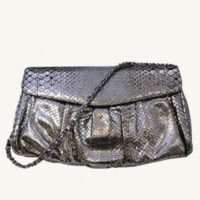Michelle Sun, Hong Kong-based engineer-turned-entrepreneur, is the founder and CEO of First Code Academy, a programming school that teaches children from the age of four onwards how to code and create mobile applications, with a particular emphasis on introducing girls to the tech sector.

How did the concept of the First Code Academy come about?
I was working as a Silicon Valley software engineer when the opportunity came up to teach children how to code. I was delighted to discover that very young kids are quick to master the required skills. I decided to build on this and bring what I had learnt back to Hong Kong. This, ultimately, led to the launch of First Code Academy.
With kids as young as four now enrolled at the Academy, are they really ready to learn programming?
These days, children start using iPads and computers at a very early age, well before they are four. For our part, we teach them how coding can help them create new things. Our approach to coding involves a lot of fun activities, all conducted in an informal atmosphere, with kids learning by playing with robots, etc. rather than staring at a screen.

Given how quickly programming languages become obsolete, how do you ensure what the kids learn remains useful?
It’s a fact that coding languages become obsolete quickly, so it’s inevitable that an eight-year-old currently learning Python may not find it useful when he graduates in 10 years’ time. We bear this in mind when we design our courses and ensure that our focus is always on the creative side of coding.
No matter what programming language they are learning, we encourage our students to develop two particular skills – problem-solving and unleashing their imagination. As they get older, their creativity and problem-solving abilities continue to be assets, with the programming language they were learning almost immaterial.
How much of an effort is it for you to stay up-to-date with the latest coding languages?
It’s an ongoing challenge but, fortunately, it’s one of the aspects of my job that I enjoy the most. When we are preparing a curriculum for an upcoming course, we start by looking at what’s new in the market and what’s soon to be released. Then we have to think about how to present it to our students in a way that is easy for them to digest.

Aside from programming languages, what are the other key challenges that you face?
Well, being an entrepreneur comes with its particular challenges. I find I have to wear many different hats every day. Sometimes I have to act as the company’s public face, while, at other times, I may be picking up trash in some of the classrooms. In between these extremes, there’s also a whole load of other things – meeting with teammates, formalising curriculums and a lot of marketing activities.
How did you feel when you were selected as one of Forbes Asia’s 30-Under-30 and also as one of the BBC’s Women Entrepreneurs Under-30?
They are huge honours and I feel particularly lucky to be recognised for doing something I love.
The real upside, though, is that these awards help build awareness of what we are doing in the wider community. A lot of parents – and even students – are aware of the awards, so that’s a plus. It gives recognition to our whole team, who have worked extraordinarily hard to get us where we are today.

With technology still very much a male-dominated sector, has that presented any particular problems for you?
While technology is still largely a man’s world globally, I have been lucky enough to be part of a growing community that actually supports women who are active in this sector and I have benefited from that in a lot of ways. I learnt how to code in a women-only coding boot-camp, for instance…
Despite that, women are still seriously under-represented in the sector and that’s a pipeline problem. The number of women who choose to major in engineering or computer science is still very low, which is something we are helping to address.
Our gender mix – across our four-to ten-year-olds – is almost 50:50. Once you look at the comparable secondary school figures, though, the ratio is 80:20 in favour of guys. Part of our role is to introduce coding to girls when they are still very young, before the idea that tech stuff is exclusively a guy thing can ever cross their minds.
What inspired you to launch the Hong Kong chapter of Women Who Code?
Women Who Code is a global initiative, one that I’ve benefited from personally. I felt, though, that Hong Kong was lacking something similar on a local basis. I wanted to create a safe place for women, somewhere they can discuss the uniquely female problems the tech sector throws up.
Thank you.
Interview by: Suchetana Mukhopadhyay, Art direction: San Wong, Photos: Neville Lee, Video: Lai Ti Yeung, Makeup and hair: Margaret Wong, Venue: Apartment Suite at The Landmark Mandarin Oriental



